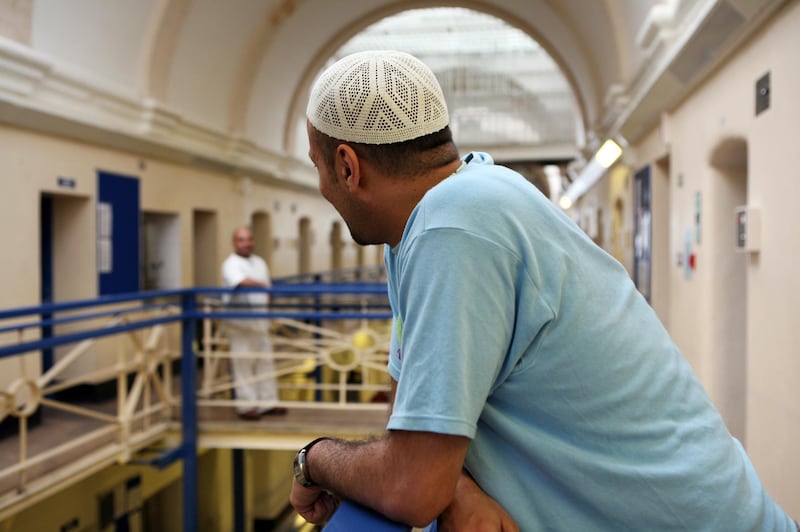British prisoners who are recruited by extremists tend to convert to radical Islam because they are driven by an anti-establishment agenda, a new report from the UK government has revealed.
A new report by the Ministry of Justice said that many who convert behind bars have little knowledge of Islam and little interest in adhering to religious practices.
The study looked at the nature of prison gangs and the impact they have on prison life within three high security prisons in England. Researchers interviewed 83 randomly-selected adult prisoners located on the main wings and 73 staff from a range of disciplines across three jails.
Researchers found a wider group, referred to as a Muslim "Brotherhood", which were the only significant group found in the jails.
Steve Gillan, general secretary of the Prison Officers Association, told The Times: "We have been warning for some time about the growth of a gang culture, whether it is the so-called Muslim Brotherhood or others. It is alarming that this report shows that gang culture is now rife within the high-security prisons."
Staff and prisoners spoke about the significant presence of a Muslim prisoner group at each establishment, which was considered to dominate the prisons in numbers and influence. Gang leaders tended to be born into Islam, were often Arabic speaking and were perceived to have a greater knowledge of the religion. However, one prisoner was sceptical of how closely the leaders were tied to the faith. “People who’re leading them aren’t intelligent. They read the Quran and make it fit with their life and their own beliefs. They don’t fit their life around the religion,” he said.
Street gang members, who were reported to be involved in many of the prison altercations, joined Muslim gangs because it offered them familiarity and the opportunity to continue with behaviours such as bullying, violence and intimidation.
Other reasons why people get recruited include being afraid and wanting safety and protection.
Gangs often serve a protective function for vulnerable prisoners, especially those who have received threats of harm.
Others are motivated by power. The report found that a small number of gang members wanted to develop a power base to control the criminal activity in the prison. However, the research noted that those driven to convert because of power were interested in propagating extremist ideologies, as it was seen as secondary to their desire for power.
Divisions between extremist offenders who were motivated by power and criminality within the prison and those who were motivated purely by an extremist agenda were reported.
“A lot of it is about furthering their own interests. They want to have power and more influence. They are less bothered about the [extremist] cause and more about furthering their own criminality and violent aims,” said a prison staff member, who remained anonymous in the study.
The researchers want to use the results of the study to inform prison management approaches, ensure systems are in place to identify vulnerable prisoners, and improve staff training and education.







